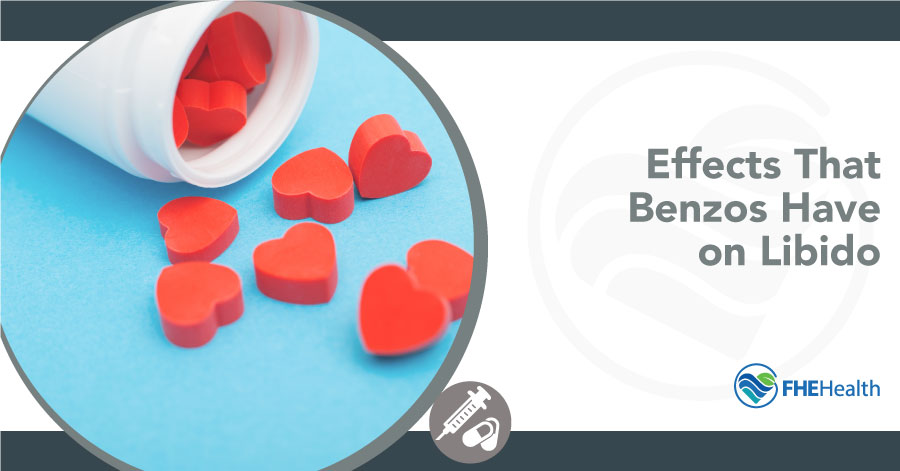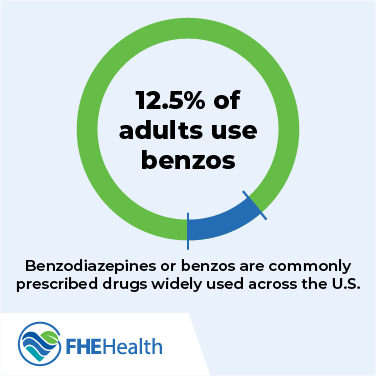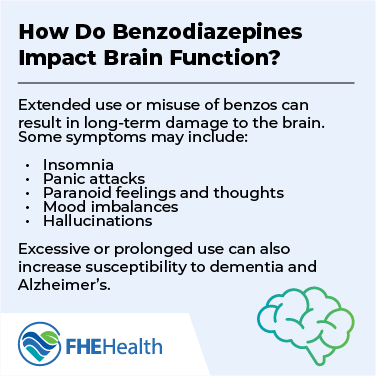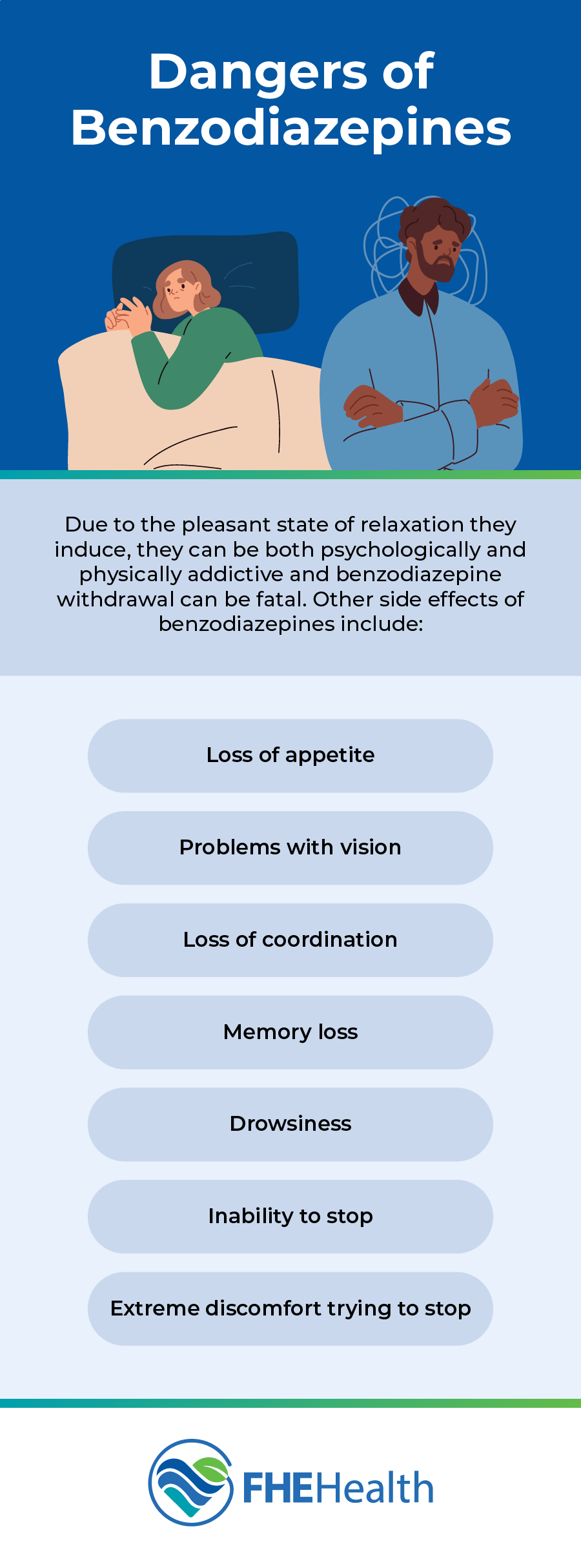
This article has been reviewed for accuracy by our peer review team which includes clinicians and medical professionals. Learn more about our peer review process.
Alex was going through a stressful time with work and felt overwhelmed by feelings of anxiety. After visiting his general practitioner, he received a prescription for Xanax, a commonly used benzodiazepine. He realized they made him feel pleasantly relaxed. Even after the stressful events in his life subsided, he continued taking benzos recreationally most evenings and weekends. Despite warnings of the sexual side effects of Xanax, he continued to take the drug.
After some weeks, his girlfriend noticed a significant drop in his libido and felt her needs weren’t being fulfilled. Upon further research, she found that some of Xanax’s sexual side effects include a decreased interest in sexual activities and decreased function of the sexual organs. She also expressed worry that Alex might be becoming dependent on the drug. His reluctance to stop taking it at first in spite of his girlfriend’s concerns caused conflict in their relationship. After serious discussions, he decided to seek help to wean off it.
He signed up for a proven program that helped him safely come off the drug. While his libido didn’t return to normal at first, dedicated abstinence and focusing on his health eventually worked. He and his girlfriend returned to enjoying an active sexual life together.
Benzo Abuse: How Common is it?
Benzodiazepines or benzos are drugs commonly prescribed to temporarily treat mental health and other conditions, such as anxiety, insomnia, seizures, muscle spasms and alcohol withdrawal. Due to the wide variety of conditions that warrant benzo prescription, they’ve become popular and widely available. In 2021, over 34 million prescriptions were written in the United States for alprazolam, 21.3 million for lorazepam and 23.7 million for clonazepam.
Benzos are readily obtainable and highly addictive, which makes these drugs susceptible to abuse. Generally, a doctor will only prescribe these medications short-term for 2 to 4 weeks. However, addiction is possible within weeks, which can lead to overdose and abuse. In 2020, there were close to 16,000 emergency room visits within the United States due to benzo overdose.
Dangers of Benzodiazepines
While benzodiazepines help many people manage stress, insomnia and other conditions, they can be dangerous. Due to the pleasant state of relaxation they induce, they can be both psychologically and physically addictive. People with a history of substance abuse or those with an addictive personality are advised to avoid using them unless absolutely necessary.
Like alcohol withdrawal, benzodiazepine withdrawal can be fatal. While you can’t overdose from benzodiazepines alone, unsupervised withdrawal can lead to something called respiratory cessation. This is when the parts of your brain responsible for autonomous breathing shut down, and you can simply stop breathing during sleep.
Other side effects of benzodiazepines include:
- Loss of appetite
- Problems with vision
- Loss of coordination
- Memory loss
- Drowsiness
- Inability to stop
- Extreme discomfort trying to stop
Sexual Side Effects of Xanax
- Decreased libido
- Erectile dysfunction
- Loss of sexual interest
How Do They Impact Brain Function?
Benzodiazepines are strong sedatives. In other words, taking this medicine slows down activity in the central nervous system. This occurs because benzodiazepines increase the quantity of gamma-aminobutyric acid (GABA) in the brain. GABA is an inhibitory brain chemical or neurotransmitter that slows down or blocks many neurological functions. While this can make users feel tranquil and relaxed, extended use or misuse can result in long-term damage to the brain.
Because benzos suppress the central nervous system, these drugs can also lower your libido. While erectile dysfunction is a condition that affects approximately 24% to 35% of all men at some point, those who take benzos are twice as likely to experience problems. Drugs such as diazepam, lorazepam and clonazepam have been shown to cause sexual dysfunction in both women and in men. In fact, studies show up to 52% of males and 63% of females on benzos struggle with sexual dysfunction.
As the brain acclimates to higher amounts of GABA generated by benzodiazepines, it ceases to create GABA on its own. When this occurs, users may experience more symptoms of anxiety, worry and panic than they had before taking benzodiazepines. Furthermore, all the nerves and brain cells that were repressed by the brain’s normal synthesis of GABA are reactivated, which might result in:
- Insomnia
- Panic attacks
- Paranoid feelings and thoughts
- Mood imbalances
- Hallucinations
Excessive or prolonged use can also increase susceptibility to neurodegenerative diseases like dementia and Alzheimer’s.
What Are the Challenges of Quitting Benzos?
When prescribed benzos, people are often unaware of Xanax’s side effects sexually. People may even initially feel that sex on Xanax is more enjoyable only to lose their sex drive entirely after prolonged or excessive use. After realizing that benzos have negative side effects, people may wish to cease use but find it extremely difficult to do so alone. Also, the higher the dose, the longer it may take an individual to recover.
Withdrawal from benzos can be treated with a gentle dosage reduction. This results in milder symptoms that come and go in waves. If you’ve been taking benzos for more than 6 months, abruptly quitting your dose might trigger grand mal seizures and delirium and can even be fatal. Considering these dangers, it’s highly advised to seek professional supervision when quitting benzos. Typically, recovery requires a gradual taper from the medication over a span of 6 to 12 months.
FHE Health has inpatient and outpatient programs that can help you recover from benzo use. Our team of doctors and psychological professionals is trained and qualified to help you. We can make the quitting process as comfortable and safe as possible.
A number of factors influence the intensity of your withdrawal symptoms, including:
- Your dose
- Length of use
- Which benzodiazepine you’re using
- If you’re using more than one drug
- If you’re quitting more than one drug
Can Your Libido Recover?
How fast your libido recovers depends on the severity of your benzo use. Your dose, how long you’ve been using and how often you use will play a big part. For some people, it can take weeks or even months to recover from benzo addiction. In general, keeping a healthy lifestyle by exercising regularly, eating well and avoiding substances will work in your favor. Try not to become irritated or discouraged by the lowered Xanax sex drive; simply be patient and persistent, and keep focusing on your health.
Ready To Start Your Journey of Recovery?
Benzodiazepines are one of the most commonly prescribed drugs in the United States. They’re most often prescribed for various mental disorders, including anxiety, panic and sleep disorders.
Despite their widespread use, benzos have many undesirable side effects and should be used with caution. They can be both physically and mentally addictive, and unsupervised withdrawal can be dangerous and even fatal.
Among other things, prolonged or excessive benzo use can negatively impact libido and may result in relationship conflict. Recovering from benzodiazepines should be done slowly and under the supervision of a professional benzo rehab center.
If you’re worried about the sexual side effects of Xanax and coming off benzodiazepines yourself, reach out to FHE Health for help. Contact us today; our team of professionals is ready to take your call.









